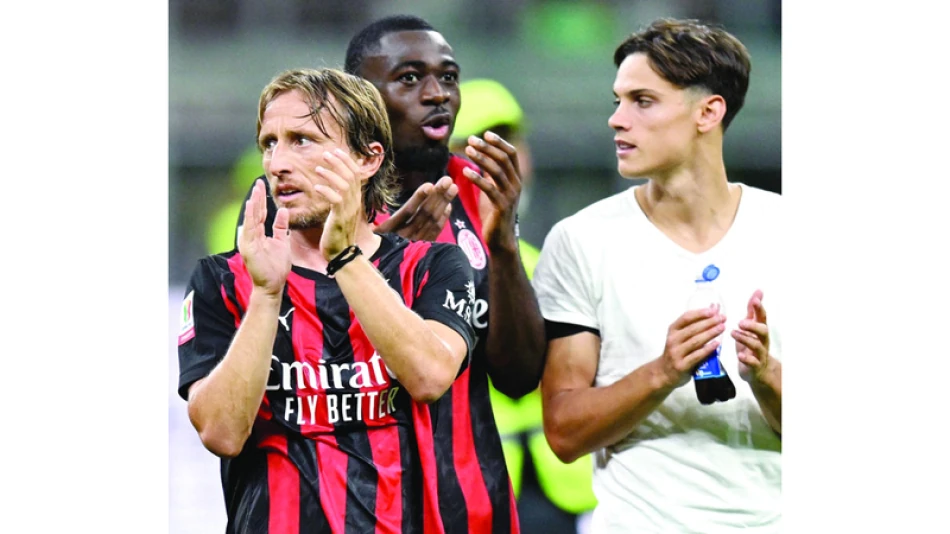
Napoli and Inter Milan Neck and Neck in Pursuit of Coveted Serie A Title
Serie A's Shifting Power Dynamic: New Coaches and Old Ambitions Set Stage for Unpredictable Season
Italy's Serie A is bracing for a potentially transformative season as multiple heavyweight clubs navigate major coaching changes and squad overhauls. While Napoli and Inter Milan remain favorites for the title, the widespread managerial reshuffling across traditional powerhouses like Juventus, AC Milan, Roma, and Atalanta could create opportunities for surprise challengers to close the gap that seemed insurmountable just months ago.
Atalanta's Post-Gasperini Era Begins
Perhaps no club faces a more dramatic transition than Atalanta, who will begin their first season since 2016 without the transformative Gian Piero Gasperini. The 67-year-old architect of Atalanta's rise from mid-table obscurity to Champions League regulars has moved to Roma, leaving successor Ivan Juric to maintain the club's attacking philosophy.
The challenge extends beyond tactical continuity. Atalanta's attack has been gutted by the departure of last season's Serie A top scorer Mateo Retegui to Saudi club Al-Qadisiyah, while key forward Ademola Lookman appears destined for an exit. This exodus mirrors the broader trend of European clubs losing talent to lucrative Saudi offers, but for a club built on tactical cohesion rather than star power, such departures could prove more disruptive than for wealthier rivals.
Milan's Redemption Quest Under Allegri's Return
AC Milan enters the season carrying the psychological weight of unfulfilled expectations. Despite capturing the Italian Super Cup, last season's eighth-place league finish represented a catastrophic failure for a club with European ambitions, resulting in their absence from continental competition for the first time in years.
Massimiliano Allegri's return in May signals a pragmatic shift away from the attacking romanticism that failed to deliver consistent results. The veteran coach has already begun his trademark squad reconstruction, allowing high-profile departures including Tijjani Reijnders, Malick Thiaw, and Theo Hernández while securing goalkeeper Mike Maignan and adding the experienced Luka Modrić as a midfield anchor.
This approach echoes Allegri's previous successful tenure, where tactical discipline often trumped individual brilliance. For Milan, whose recent seasons have been marked by inconsistency despite talent, this return to fundamentals could prove crucial for European qualification.
Juventus and the Champions League Imperative
Igor Tudor faces perhaps the most scrutinized coaching appointment in Serie A, tasked with returning Juventus to the Champions League after their playoff elimination to PSV Eindhoven. The additions of João Mário and Jonathan David provide tactical flexibility, but the gap to title holders Napoli remains substantial.
Juventus's problems run deeper than personnel. Last season's lack of attacking efficiency in crucial moments reflected systemic issues that new signings alone cannot solve. The club's recent years have been marked by a gradual decline from their dominant 2010s era, when nine consecutive titles established them as Italy's premier force.
For a club accustomed to European competition as a revenue source and prestige marker, missing Champions League qualification would represent both financial and sporting catastrophe.
Roma's Calculated Optimism
Roma presents the season's most intriguing narrative. After a dismal start under previous management, Claudio Ranieri's interim leadership salvaged fifth place before his planned retirement. Gasperini's appointment represents a philosophical shift toward long-term development, exemplified by the emphasis on young talents like 20-year-old Evan Ferguson.
This strategy reflects broader trends in Italian football, where financial constraints have forced clubs to prioritize youth development over expensive acquisitions. Roma's approach could serve as a template for sustainable success in an era where Premier League and Saudi wealth has inflated transfer markets beyond many Serie A clubs' reach.
Market Implications and European Context
The widespread coaching changes reflect Serie A's ongoing struggle to maintain competitive relevance against wealthier leagues. Unlike the Premier League's financial arms race or La Liga's star power, Italian football increasingly relies on tactical innovation and player development to compete.
For investors and broadcasters, this season represents a crucial test of Serie A's entertainment value. The league's global appeal has historically depended on tactical sophistication and competitive balance rather than individual superstars. Whether new coaching appointments can deliver compelling narratives and close title races will influence future media rights negotiations and commercial partnerships.
The season beginning Saturday will ultimately determine whether Italian football's emphasis on coaching excellence can compensate for its financial disadvantages in an increasingly globalized sport.
Most Viewed News

 Sara Khaled
Sara Khaled






